The National Register of Citizens (NRC) contains the names of Indian citizens in Assam. It specifically emphasizes on inclusion of all those who came to India after first January 1966 and before twenty-fifth March 1971 as Indian citizens. It was initially prepared in 1951, but was not updated by successive governments in Assam due to their vote bank politics. However, with the efforts of the present Government at the Centre and the Assam State Government, the final draft was released on August 1.
On the whole, about 3.29 crore applications were received for consideration. Of this, 40 lakhs were found ineligible, which included names of 2.48 lakhs doubtful voters, and they were referred to the Foreigner’s Tribunal. After a long wait, the Home Ministry decided to release the first NRC list by 31 December 2018. It was a massive task for the Government to have employed about 40,000 employees, 8,200 outsourced workers, with an approximate cost of around 1,200 crore rupees.
The strongest reaction following its publication came those political parties who depend on these illegal migrants for their vote banks. The Government categorically announced that names of those which were not mentioned in the list, may submit their fresh claims for inclusion in the month of September 2018. However, if fresh claim is also rejected, he or she can move to the Foreigner’s Tribunal, then to High Court and further to the Supreme Court.
The NRC has become the main point of discussion in the Parliament. There were many heated debates between the Bharatiya Janata Party (BJP) and the opposition parties in both Lok Sabha and the Rajya Sabha. Home Minister Rajnath Singh gave a statement in the Parliament that the present NRC list was not the final one and few political parties were internationalising this issue to create an un-necessary fear in the minds of those whose names were excluded unintentionally from the list. He assured people not to panic and argued that those civilians, whose names are not included in the list will get a chance to prove their citizenship. The drama went to the extent that few Members of the Parliament and Trinamool Congress leaders tried to visit Silchar, but were detained just after landing at the airport.
The Registrar General of India did not disclose the reasons to the public and kept secret reasons for excluding the names of 40 lakhs of people from the NRC. Practically, after much opposition from various political parties, when no progress was achieved on the NRC, the Supreme Court intervened and the process restarted in 2015. The climax was when the name of United Liberation Front of Assam leader Paresh Barua appeared in the list, along with that of his son and wife, as they are not in India for a long time. The same was for Anup Chetia. The Registrar General had clearly stated that the fundamental rights and privileges that these 40 lakh people enjoy as Indian Citizens will remain unchanged till the next update of NRC, that is, till December 31, 2018. Thus, the Registrar General of India has been given the task to finalise these issues in five months.
Soon after the release, there was a war of words between Mamata Banerjee and Assam Chief Minister Sarbananda Sonowal. Ms. Banerjee termed the development as a conspiracy to remove all Bengalis & Biharis from Assam and Mr. Sonowal declared it as a task undertaken as per the instructions of the Supreme Court. Prafulla Mahanta, former Chief Minister of Assam and the leader of Assam Gana Parishad opined that the NRC could not have been completed unless the Supreme Court intervened as the previous governments remained quiet on the issue for the sake of their vote banks. Ms. Banerjee also alleged that the BJP had made a large number of Indians as refugees in their own country through the NRC, whereas Mr. Sonowal justified the NRC as a result of demands by various communities in Assam and that the progress was undertaken as per strict instructions of the Supreme Court. There was exchange of words between the BJP and the Congress Party about backing Bangladeshi illegal migrants.
The Government’s view is that those left out of the NRC would have to approach the Registrar General of India and prove their nationality as Indians, whereas Congress leader Ghulam Nabi Azad asked the Government to prove that the left over 40 lakh people were not Indians. The Biju Janata Dal, a political party of Odisha - where many Bangladeshi migrants are settled – has openly come out in favour of the NRC with a clause that the exercise must be error-free and without any political motive.
To reiterate, the entire episode of scrutiny of Assam’s residents started from the ‘Assam Accord’ that the Rajiv Gandhi led government signed with Assam students in 1985 to identify Bangladeshis, which even earlier Congress-led Assam governments failed to implement the fear of loss of vote bank. The NRC issue had even been marked by one the Trinamul Congress leader, Ms Banerjee, as a cause of civil war not only in Assam but in Bengal. It has also been mentioned that the matter may annoy Bangladesh enough to shift its policy against India. Fear of blood bath in Bengal also up when BJP leaders visited West Bengal to clarify their stance counter it such contentions. Yet, it is true that if some names do not appear in the final list, the voting rights of those people will be withdrawn.
On the whole, the exercise is not directed against any specific community but against those aliens, who manipulated their stay in this country to avail facilities at the cost of Indian citizens. Even Bangladesh is trying to return Rohingyas to Myanmar, but we have failed to even return 50 Bangladeshis from India out of the crores who came after 25 March 1971. It was reported that Indian identity cards and voter cards were sold in Mymensingh to people entering the Indian territory from Silchar border. The worst affected ones in Assam are those in Kokrajhar, Baksa, Udalguri, Guwahati, Sonitpur, Silchar, Goalpara, Dhubri and Karimgan,j who suffered the most due to penetration of Bangladeshis to capture their land, besides the government land.
What happened in Assam must be followed by other states where these migrants reside in large numbers, including Delhi and even in Srinagar at Qamarwari. Let the NRC start with West Bengal, followed by Bihar, Uttar Pradesh and Odisha. The draft NRC is not against any community; it is to identify the illegal immigrants in India. Other than Assam, there are more such immigrants in other states as well. What is wrong in starting the same process elsewhere? Fear of blood bath?
The Supreme Court had specifically ordered avoidance of coercive action when going ahead with the long pending NRC process. Standard Operating Procedures must be followed while verifying citizenship, something which the Supreme Court has emphasised. Whether it is West Bengal or Arunachal Pradesh, states have to co-operate in the NRC verification. Few political parties may try to shelter these aliens who may flee from Assam to nearby states. It would be better for the political parties to refrain from mudslinging against each other, and rather co-operate on a policy framed to protect national security. Dragging Bangladesh, Myanmar and Pakistan in the NRC issue should be avoided by any political leader as national interest reigns supreme. The NRC is an important document which will clearly distinguish Indians from refugees and illegal immigrants.
(The paper is the author’s individual scholastic articulation. The author certifies that the article/paper is original in content, unpublished and it has not been submitted for publication/web upload elsewhere, and that the facts and figures quoted are duly referenced, as needed, and are believed to be correct). (The paper does not necessarily represent the organisational stance... More >>
Image Source: https://www.frontline.in/migration_catalog/article23009044.ece/alternates/FREE_615/29FLPROTESTRALLY

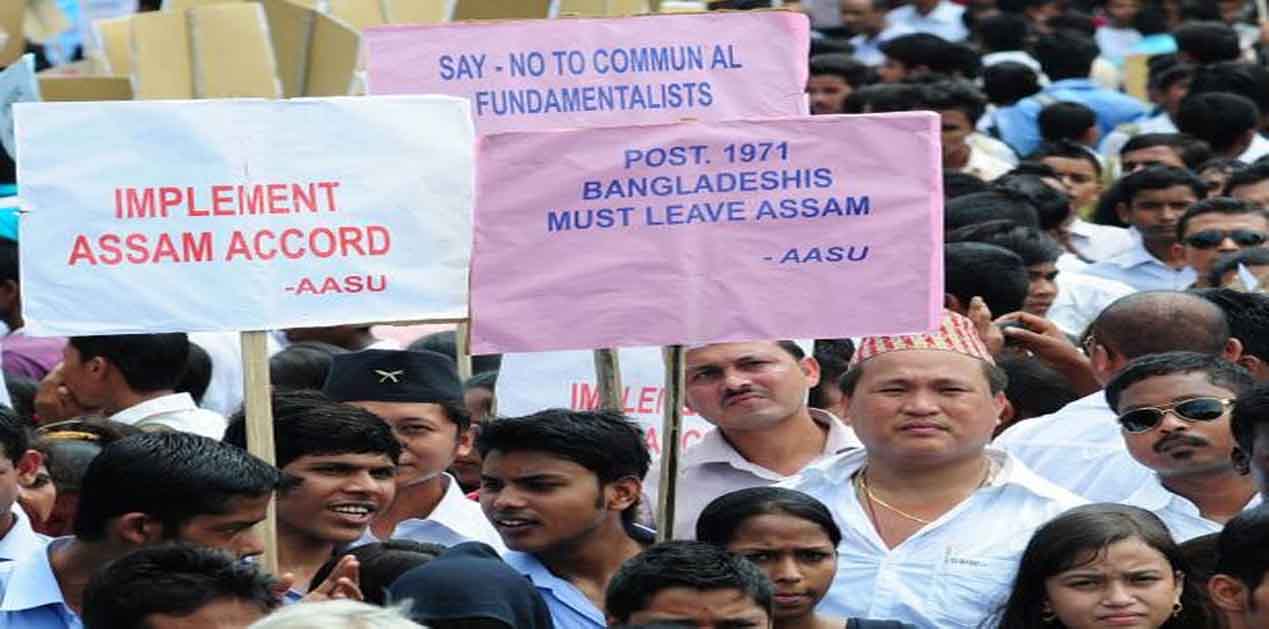
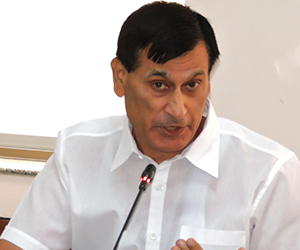
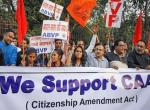

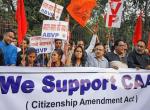
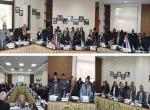

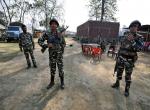

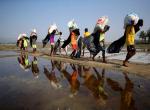
Post new comment